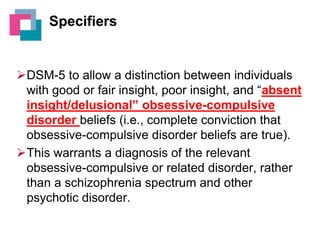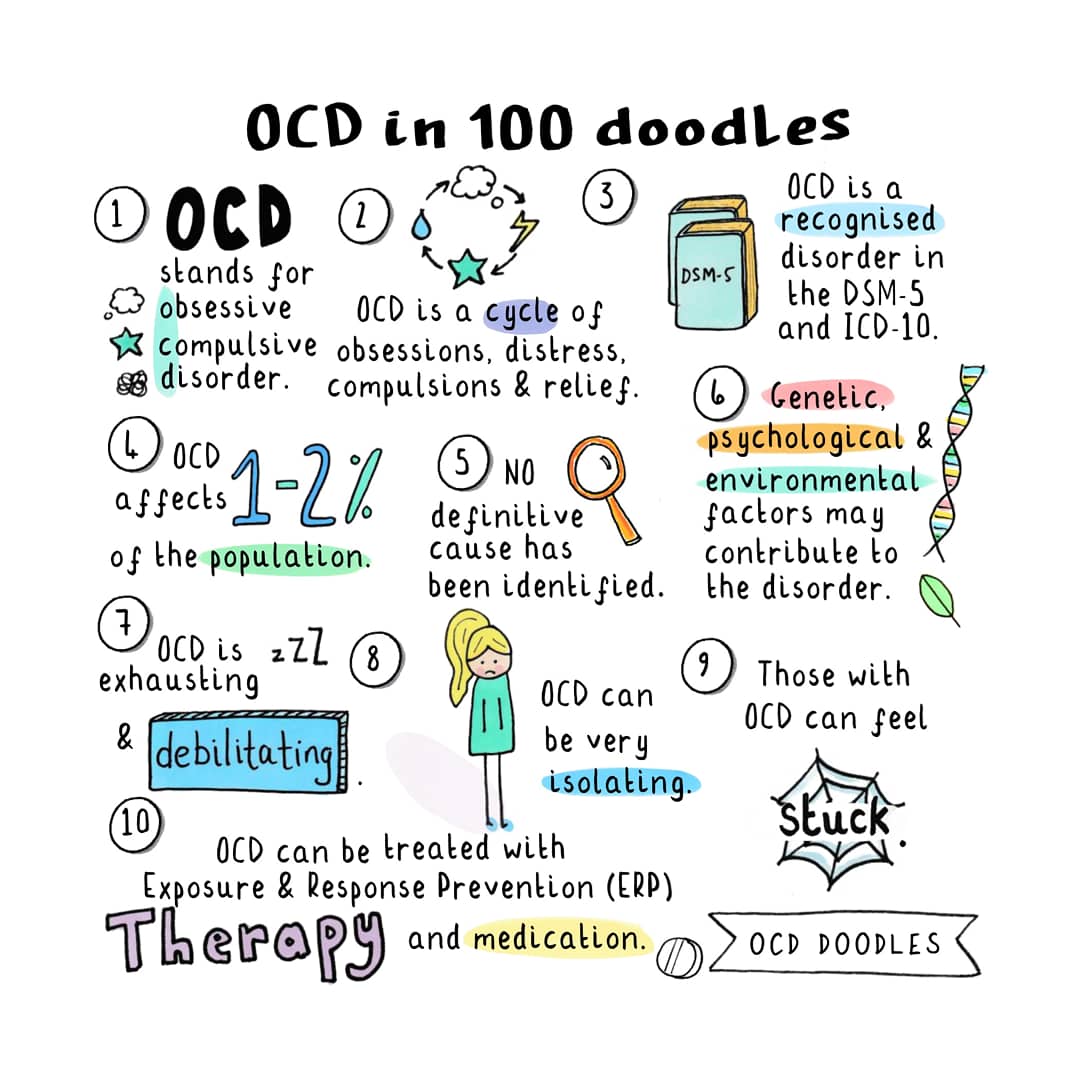


To receive an OCD diagnosis, you must meet these general criteria: Your symptoms must meet both the general and specific characteristics of obsessive-compulsive disorder.
#Dsm 5 ocd professional
The physician or mental health professional will determine whether you meet the specific obsessive-compulsive disorder criteria listed in the DSM-5, during the psychological evaluation portion of your visit. Specific Obsessive-Compulsive Disorder Criteria The doctor may also want to talk to your family or close friends and also find out your family mental health history and whether other family members have OCD or any other mental illness. If you've had thoughts of suicide, harming yourself, or others.Severity of symptoms (from your point of view).During the evaluation, the doctor will ask you about a number of things, including: Your mental health provider will conduct a psychological evaluation to see if you might meet the criteria for obsessive-compulsive disorder. (Read: Substance, Medication Induced OCD and Related Disorder) These things could cause symptoms that temporarily mimic OCD. They perform the physical exam and laboratory tests to rule out things, such as alcohol, drugs, thyroid gland issues, and other health problems. (Read: OCD and Related Disorder Due to Medical Condition) Frequently, the physician will check for thyroid problems by blood test as well. The blood test will check your complete blood count (CBC) and look for things like alcohol or drugs in your blood. She may order some laboratory tests like a blood draw.

During the physical examination, the doctor will likely check:

#Dsm 5 ocd series
Unlike physical diseases and illnesses, doctors don't have specific laboratory tests available to diagnose mental illness, such as OCD.įirst, he or she will probably run a series of medical tests that include psychological and physical exams as well as laboratory tests.
#Dsm 5 ocd manual
The newly updated DSM-5 ( OCD in DSM-5) acts as a manual for mental health professionals in giving an obsessive-compulsive disorder diagnosis. There are effective ways to treat and manage OCD and many people with the disorder live productive, happy lives. If you receive an OCD diagnosis, it means that you have a chronic mental illness that will require lifelong management. To receive an OCD diagnosis, you must meet certain diagnostic criteria laid out in the Diagnostic and Statistical Manual of Mental Disorders, Fifth Edition (DSM-5). An obsessive-compulsive disorder diagnosis can only come from a qualified mental health professional.


 0 kommentar(er)
0 kommentar(er)
